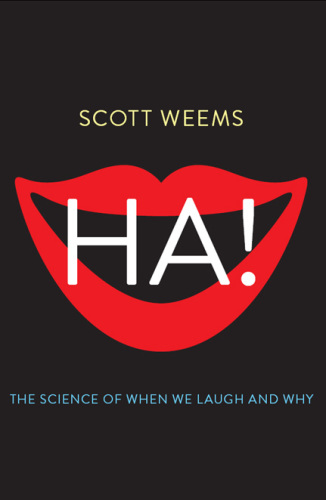
Ha!
The Science of When We Laugh and Why
کتاب های مرتبط
- اطلاعات
- نقد و بررسی
- دیدگاه کاربران
نقد و بررسی

December 9, 2013
Cognitive neuroscientist Weems takes a crack at explaining humor, what it does to the brain, and what purpose(s) it may serve. He describes the effects of dopamine and how the anterior cingulate, the “part of the brain responsible for managing conflict,” overrides the “false expectation” required by many jokes. Weems renders extensive research accessible for a wide audience, citing one study that explored differing attributes of humor across nationality and gender, and another, dubbed “The Bill Cosby Effect,” that claims comedy’s analgesic effect in post-surgical recovery. Weems examines various categories of humor and what they say about human thought and behavior, including “gallows humor,” “lawyer jokes,” and meta-humor. He tackles the “Are women less funny than men?” controversy, notes a study that revealed the tangible negative impact of sexist jokes, outlines personality traits that supposedly contribute to a person’s funniness, ponders why computers can’t master humor, and investigates how comedic timing operates. In addition to a number of amusing jokes, Weems analyzes notable moments in comedy, including Lenny Bruce’s 1961 Carnegie Hall performance and Gilbert Gottfried’s notorious “Aristocrats” routine from the roast of Hugh Hefner. Humor is a difficult, subjective topic of study, and while Weems doesn’t present major conclusions, the information is interesting and the commentary insightful. 6 b&w illus.

February 1, 2014
Books analyzing humor are an extensive genre and invariably humorless. Despite a generous selection of jokes, few readers will laugh their way through this latest effort, but they will not be bored as neuroscientist Weems eschews philosophy in favor of hard science. Many animals laugh, but only humans joke. Appreciating a funny story is a complex cerebral activity that, according to high-tech scans, activates brain regions identical to those we use when solving problems. "Although traditional jokes are now rare thanks to humorists like [Lenny] Bruce," writes the author, "humor remains alive and well because it's a process, one that reflects the times and needs of its audience." Both humor and problem-solving require insight, creativity, psychological health and intelligence; in fact, writes Weems, "the smarter we are, the more likely we are to share a good joke." Surprise is essential in humor. We laugh at a story that abruptly reveals an incongruity, but this requires a mature brain with vast experience of the world and one that works obsessively to find patterns in the messy, ambiguous information that bombards it. Young children and those suffering from Alzheimer's disease and other neurological disorders often cannot tell a joke from a lie. That computers lack creativity and can't handle ambiguity turns out to be wrong; they are already churning out mildly funny jokes ("What kind of murderer has moral fiber? A cereal killer"). So far, their range is limited, and they have no ability to appreciate humor, but this may improve in time. Many readers will squirm at the obligatory account of the author's effort at stand-up comedy, and they may roll their eyes at his earnest, if scientifically impeccable, advice for using humor to fight disease, make friends and influence people, but most will enjoy this stimulating overview of what researchers have learned about why we laugh.
COPYRIGHT(2014) Kirkus Reviews, ALL RIGHTS RESERVED.

























دیدگاه کاربران